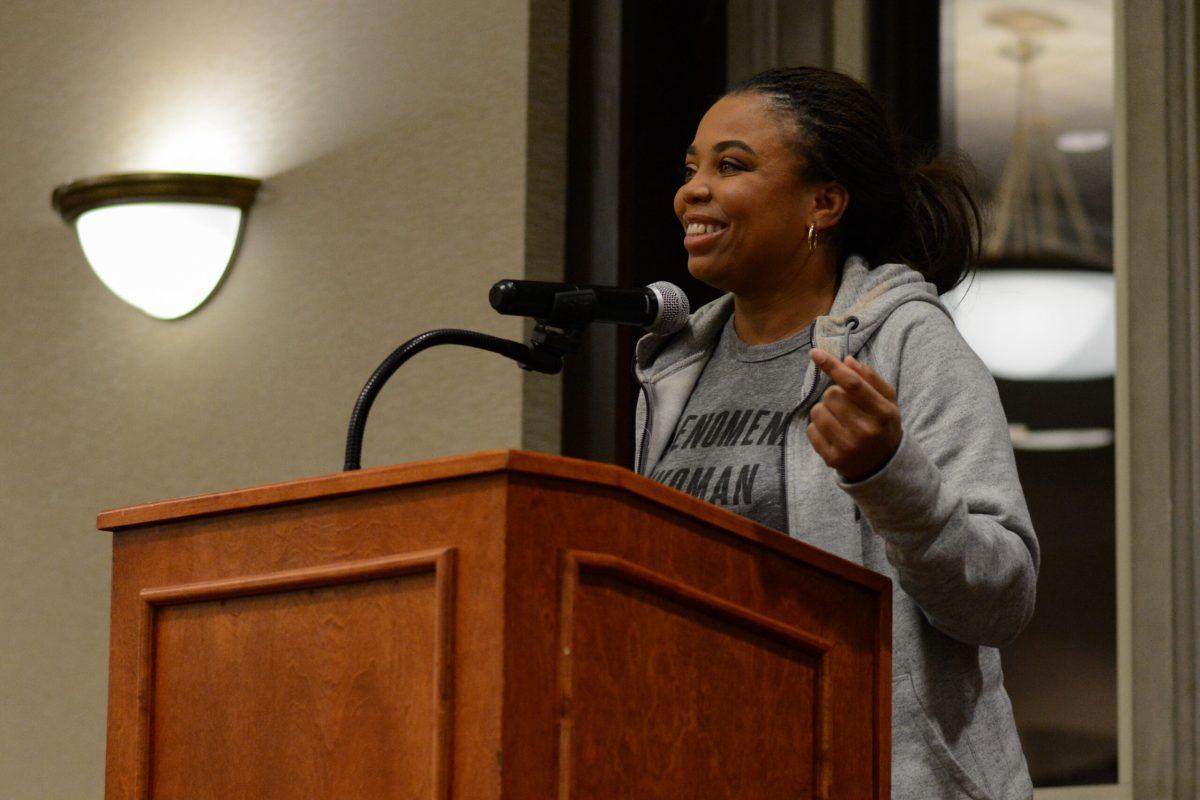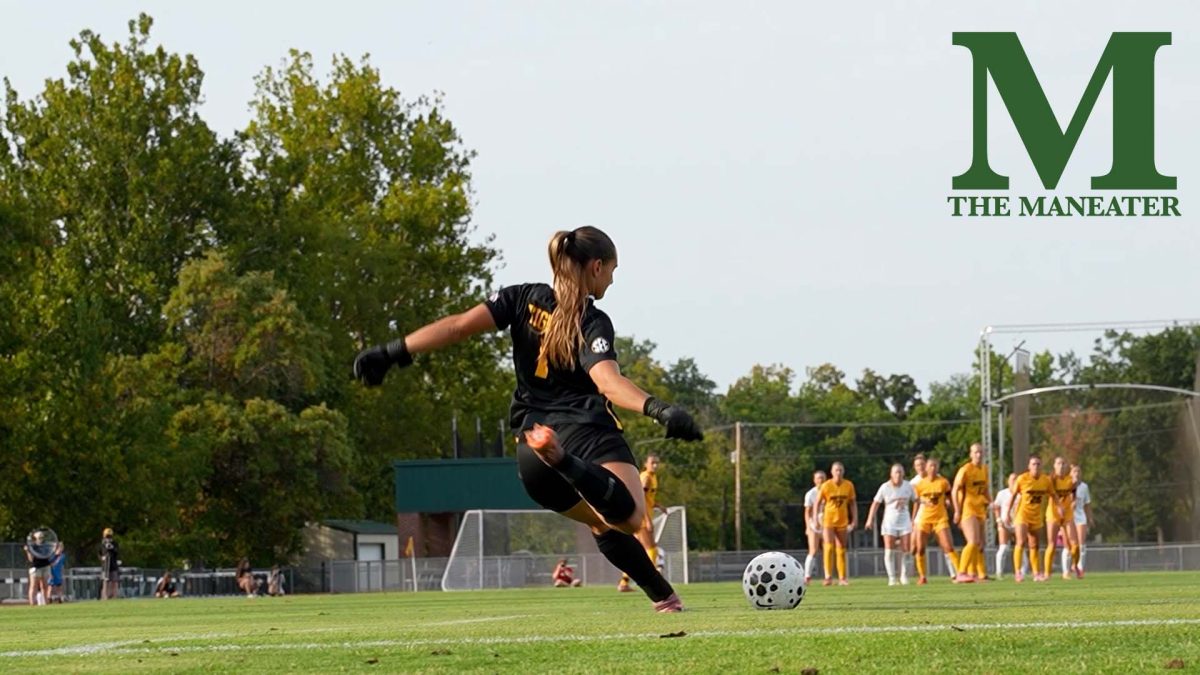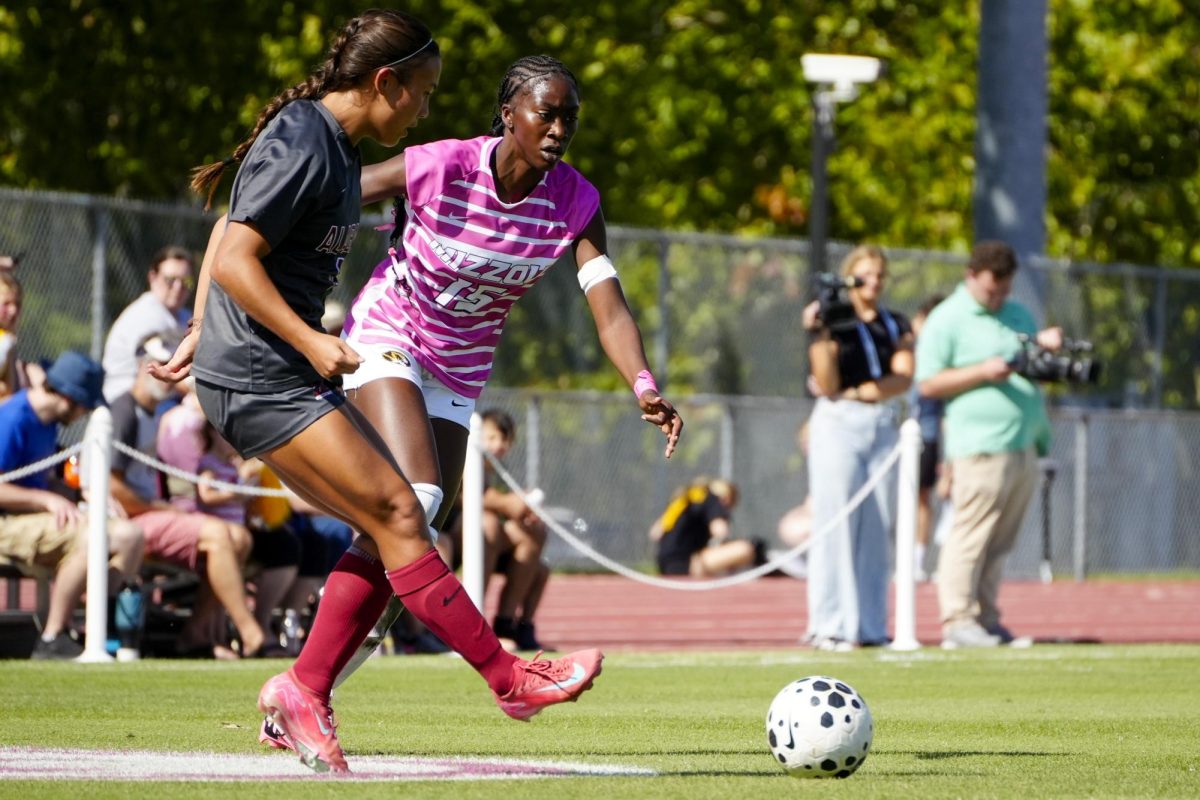Some say sports are a form of escapism. Jemele Hill would say the opposite.
Hill, currently of The Atlantic and formerly of ESPN, spoke to MU community members and students at Memorial Student Union Monday night in an event sponsored by the MU School of Journalism’s Diversity and Inclusion Committee. She discussed a variety of subjects during a Q&A, ranging from her time on ESPN’s SportsCenter to her experiences covering the intersection of gender, race and politics with the world of sports.
“There are a lot of people who feel as if [these issues] is not a place where sports conversations belong,” Hill said in her presentation. “Most of those people are being intellectually lazy and at issue with the viewpoint being discussed, as opposed to the actual intersection happening.”
That intersectionality is the arena Hill currently operates in for The Atlantic. It’s also what got her in trouble with ESPN after her tweets criticizing Donald Trump and the Dallas Cowboys’ kneeling policies violated the company’s social media policy.
After college, Hill began her journalism career at the Raleigh News & Observer, which is located in North Carolina. She also worked in Detroit and Orlando before joining ESPN in 2006 as a columnist and television contributor.
After meeting in Boston during an NBA playoff game, ESPN’s Michael Smith and Hill stayed in touch over the next few years. They later started a podcast on ESPN called His and Hers where they became more popular over time. They eventually were moved to television after the departure of Jalen Rose.
“The podcast was born out of being tired of asking people to see what we saw in ourselves,” Hill said in her presentation. “We started developing a bit of a following and essentially we wound up on television together because we won the war of attrition.”
In February 2017, Smith and Hill began co-anchoring the 6 p.m. hour of SportsCenter. Their chemistry brought a unique style of broadcasting to the show.
“ESPN is the best job I’ve ever had,” Hill said in her presentation. “But there’s a lot of very talented people there and it’s a constant fight for real estate.”
Earlier this year, the National Association of Black Journalists named Hill Journalist of the Year. She believes that part of her success as a journalist came from knowing that she wanted to be a journalist from a young age.
“I loved writing and I was a voracious reader,” Hill said in her presentation. “I was lucky because I fell in love instantly with journalism.”
Recently, she has been narrating the documentary “Shut Up and Dribble.” This documentary portrays the collision between sports, race, politics and culture.
She advises young journalists to pursue this career if they have a desire to find the truth.
“If you want to do [journalism] because you want to tell stories, get at the truth and hold people accountable, you’re in the right job,” Hill said in her presentation. “Don’t worry about how much money you will make. Worry about doing the job well.”
She noted that political issues have played a role in sports well before the Civil Rights Act of 1964. She named Jackie Robinson as just one example.
“Sticking to sports has never been a thing,” Hill said in her presentation, “because the athletes haven’t allowed us to.”
_Edited by Bennett Durando | [email protected]_








